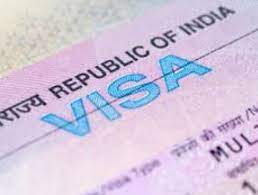Introduction
In an era where technology is revolutionizing every aspect of our lives, it comes as no surprise that the travel industry is also transforming. One notable development is the introduction of the Indian eVisa system, simplifying the visa application process for travelers worldwide. In this guide, we will explore the convenience and efficiency of the Indian eVisa, focusing on the associated airports and essential visa requirements.
Understanding Indian eVisa
The Indian eVisa is an online travel authorization that allows foreign nationals to enter India for tourism, business, and medical purposes. Introduced by the Government of India, this electronic visa aims to streamline the traditional visa application process, offering a faster and more accessible alternative for travelers. The process involves submitting an online application, receiving an electronic approval, and then obtaining the visa upon arrival at select airports.
Indian eVisa Airports
The Indian eVisa Airports is currently accepted at 28 designated airports across the country. These airports are strategically located to facilitate easy entry for eVisa holders. Some of the key airports where travelers can avail themselves of the eVisa facility include major international hubs like Indira Gandhi International Airport in Delhi, Chhatrapati Shivaji Maharaj International Airport in Mumbai, and Kempegowda International Airport in Bangalore.
The convenience of these airports lies not only in their geographical locations but also in their state-of-the-art facilities and streamlined immigration processes. Travelers flying into India with an eVisa can expect a hassle-free experience, with dedicated counters and personnel to expedite the entry process.
Indian Visa Requirements
To make the most of the Indian Visa requirements, travelers need to be aware of the specific requirements for successful application and entry. Here are the key requirements:
Eligibility: The eVisa is available to citizens of over 160 countries, and travelers must check their eligibility before applying. The list of eligible countries can be found on the official Indian eVisa website.
Valid Passport: Travelers must possess a passport with at least six months of validity from the date of arrival in India. The passport should also have at least two blank pages for stamping.
Recent Photograph: Applicants are required to upload a recent passport-sized photograph with a white background during the online application process.
Travel Itinerary: Travelers must have a confirmed round-trip ticket to and from India.
Conclusion
The Indian eVisa has emerged as a game-changer in the travel landscape, offering a user-friendly and efficient way for visitors to explore the diverse and culturally rich nation. With a focus on accessibility and convenience, the designated airports play a crucial role in ensuring a smooth entry process for eVisa holders. By adhering to the specified visa requirements, travelers can unlock the potential of this digital visa system, making their journey to India a seamless and enjoyable experience.
As the world continues to evolve, the Indian eVisa stands as a testament to India’s commitment to embracing technological advancements for the betterment of its tourism sector. Whether you’re a globetrotter seeking new adventures or a business professional attending meetings in India, the eVisa provides a gateway to the incredible experiences that await within this vibrant and diverse country.

